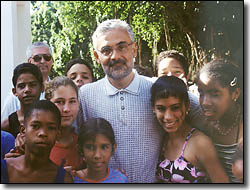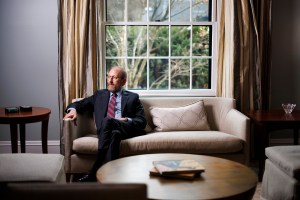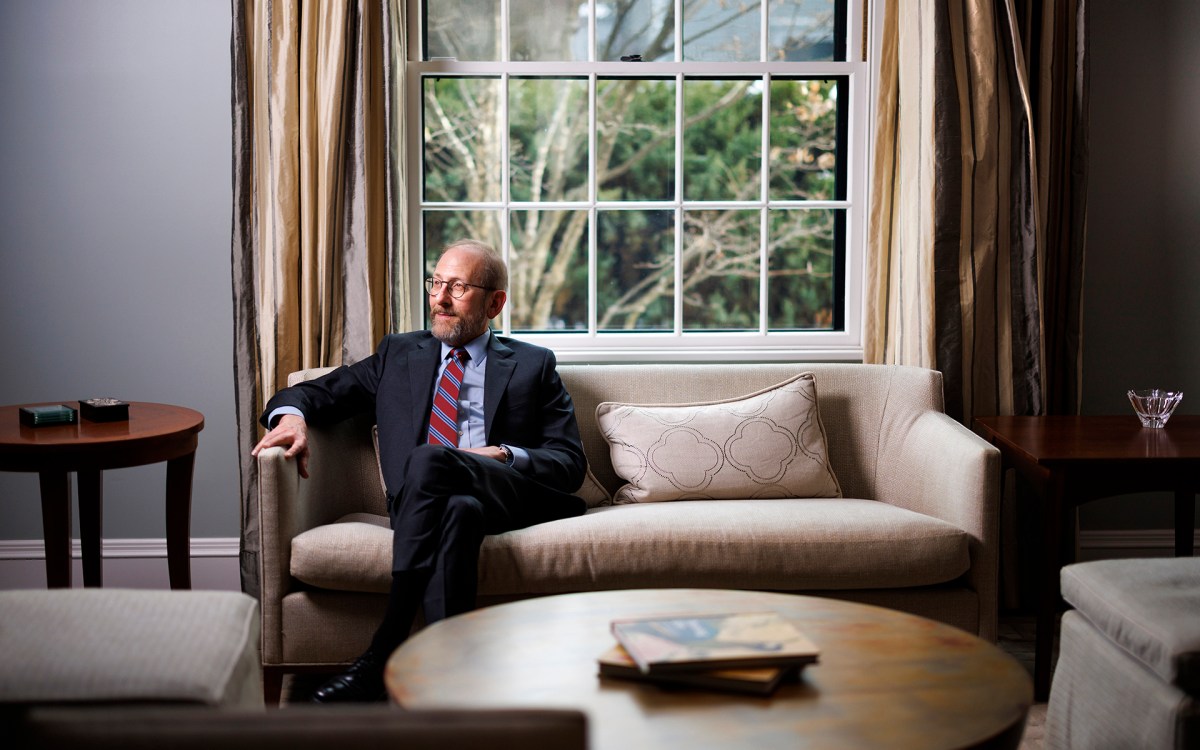Harvard Reaches Out To Forge Links With Cuba

At a time when U.SCuban relations are at best strained and at worst bordering on crisis, a group of Harvard scholars is working to strengthen educational and cultural ties between the two longtime adversaries. The group went on a five-day trip to the island nation last week.
The trip was coordinated by the Washington Office on Latin America with the express purpose of expanding research collaboration and academic exchange programs involving the United States and Cuba. The 50-member delegation was headed by Massachusetts congressmen Joe Moakley and James McGovern, and included representatives from more than a dozen Massachusetts colleges and universities. The Harvard contingent was led by Jerome Murphy, Dean of the Graduate School of Education (GSE) and Stephen Reifenberg, executive director of the David Rockefeller Center for Latin American Studies.
“There was a great interest [among the participants] in finding out whats going on [in Cuba] particularly in the areas of education and health, and in the arts, and then looking for some possible areas of collaboration,” Reifenberg says.
Harvards relationship with Cuba dates back more than a century. A hundred years ago, some 1,300 Cuban teachers traveled to the University to train in American educational techniques. In the mid-50s, José Luis Sert, at that time Dean of the Graduate School of Design (GSD), led a team that devised a master architectural plan, never implemented, for the city of Havana. In recent years, the nations top research institute in the field of tropical medicine, Instituto de Medicina Tropical “Pedro Kouri,” has established close links to the Harvard Medical School.
As unofficial contacts between the United States and Cuba increased in the 1990s, Harvard has expanded its ties with the communist country. According to the Rockefeller Center, at least 16 faculty in 10 departments and professional schools have either taught courses or conducted research in Cuba. Through a grant from the John D. and Catherine T. MacArthur Foundation, the Rockefeller Center has promoted a wide range of exchanges between Harvard and Cuban faculty and scholars in areas ranging from tropical medicine to the social sciences, humanities, and library sciences.
Harvard students are also bearing the fruit of that exchange. In the Faculty of Arts and Sciences alone, five courses, focusing significantly on Cuba, have been offered over the past year.
Murphy believes last weeks trip was an excellent opportunity to existing bonds and build new ones. “I think we were able to establish some early connections with some institutions where we, at the School of Education, might be able to develop some exchanges of scholars and students,” Murphy says. “The hope would be that we can get some Cuban students here, and get some of our research going down there, and I think we made some connections that may lead us to be able to do that.”
The delegation met with a number of top Cuban administrators, including the ministers of culture and education, senior officials with the ministry of health, and representatives from the University of Havana. A series of smaller, more specialized meetings were also held, Reifenberg explains, between “scholars doing everything from veterinary medicine to marine sciences.
“What this group was doing is consistent with the people-to-people exchange program of the United States,” Reifenberg says. “Primarily, the involvement of good faculty and researchers [in Cuba] is the kind of thing the [Rockefeller] Center is always looking to facilitate and promote, and I think out of this trip there are a number of very concrete projects that will go forward.”
One such project involves botanical research. Reifenberg says several plant specialists from the Cienfuegos Botanical Garden [formerly the Harvard Botanical Garden, until operations were taken over by the Cuban government in the early 1960s] will visit the Harvard Herbarium during the summer.
Another result of contacts established during the trip will be a direct exchange of documentation and research on Latino immigration patterns in the United States. GSE Professor Marcelo Suarez-Orozco, co-director of the Harvard Immigration Project (HIP), spoke on the topic last week at the University of Havana. “They were very interested in our new research initiatives at the HIP on the new Latin American immigration,” Suarez-Orozco says. “There is some interest on their part to be brought up to date on issues relating to this new Latino immigration pattern, and in the context of that, theres a lot of interest in trying to send some Cuban scholars to the University.”
Suarez-Orozco was impressed with the reception he received in Havana. “My sense is they are tremendously eager, certainly at the university level to [establish greater] communications [between the two countries]. Theres a great deal of interest about life in the United States, about sports, about the universities, about research. Thats what struck me the most.”
Reaching over the Florida Straits can be convoluted, compelling, and controversial, all at the same time. There is certainly trepidation on both sides, given the acrimonious history between the two nations. In addition, and the prospects for failure are obvious in this venture. But Suarez-Orozco is convinced the potential for success outweighs the risks. He points to one event as the defining moment of the trip:
It happened, he explains, during a meeting with a group of Cuban writers and artists. “One of the fellows stood up, a Harvard graduate by the way, and [making a veiled reference to the failed Bay of Pigs invasion on the Cuba coastline almost 40 years ago], he said, This is the kind of invasion that we welcome an invasion of college presidents and college professors.”
And there are many who hope the “invasion” has only just begun.




